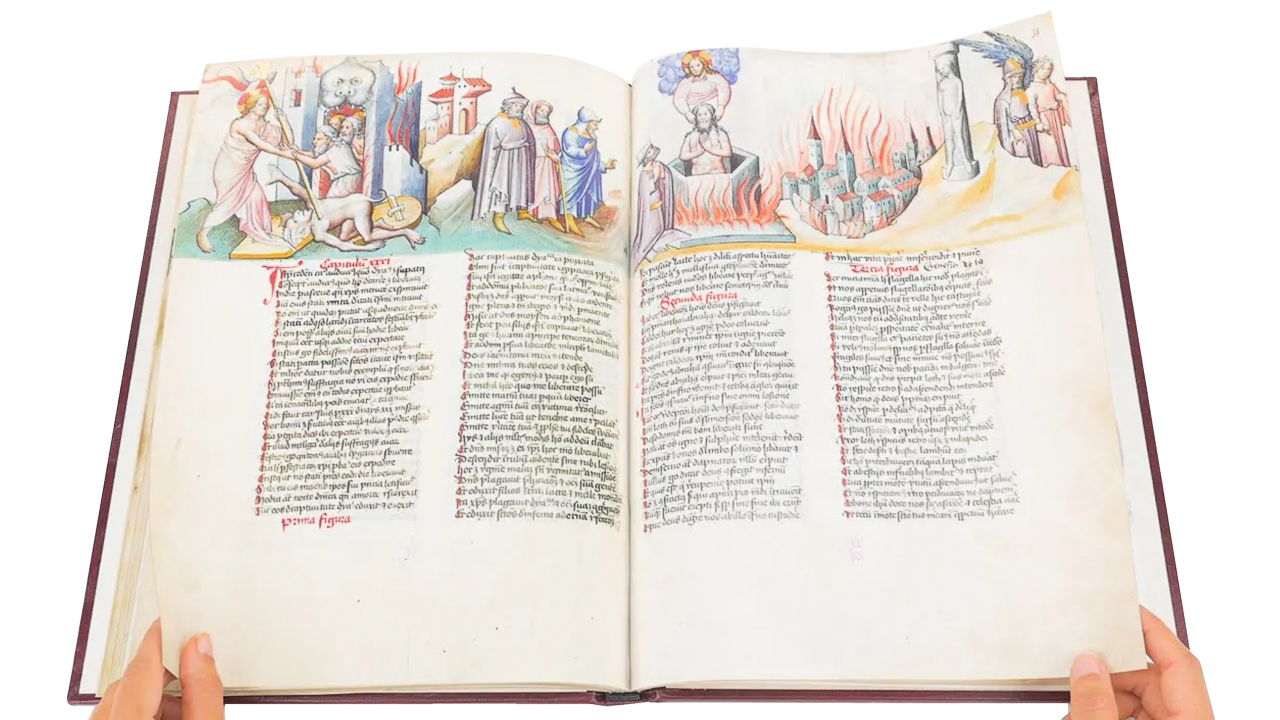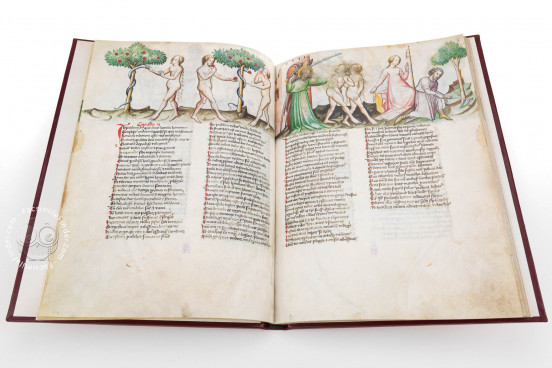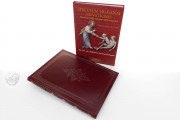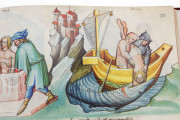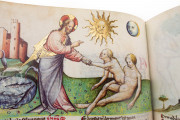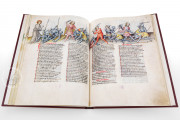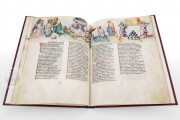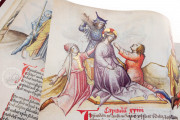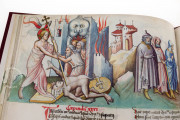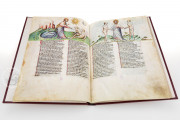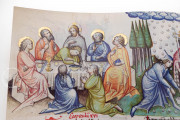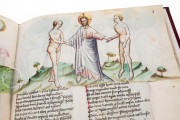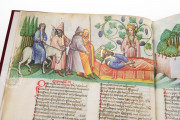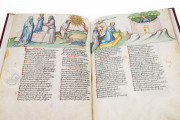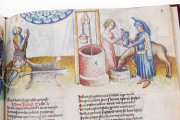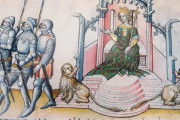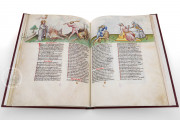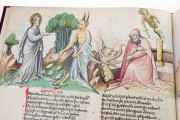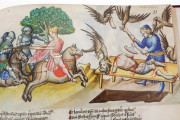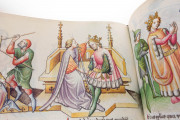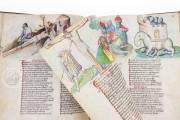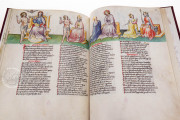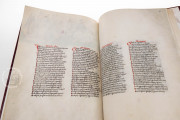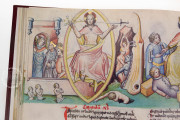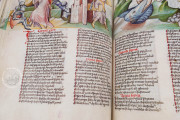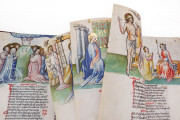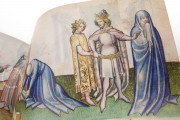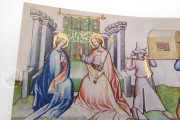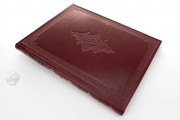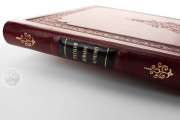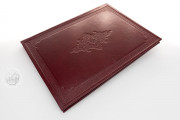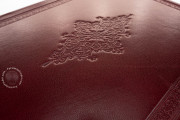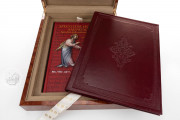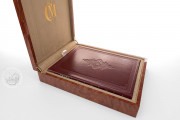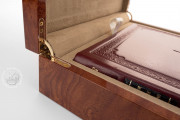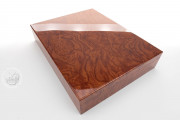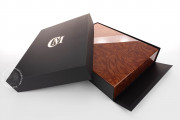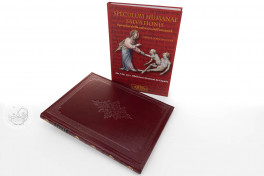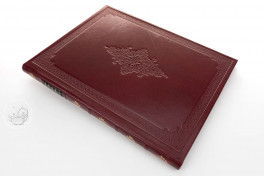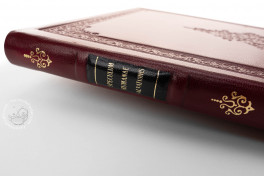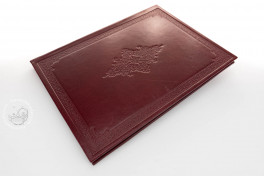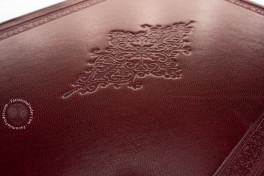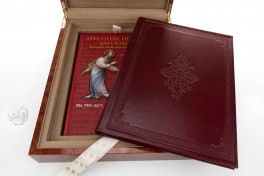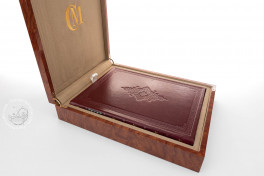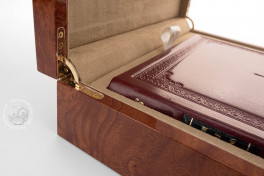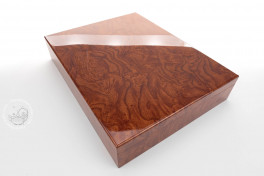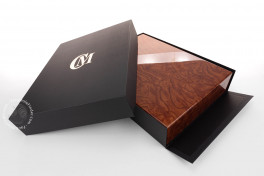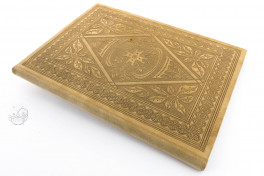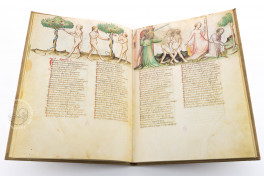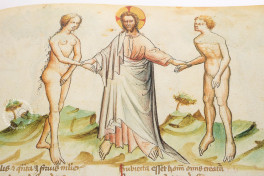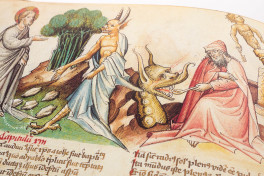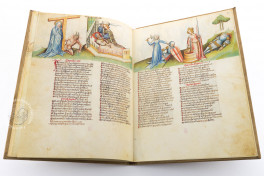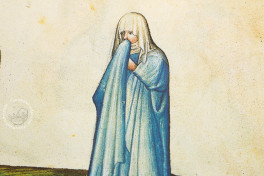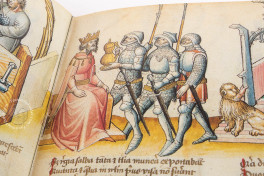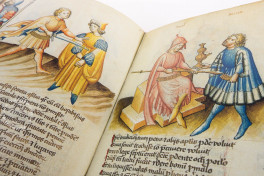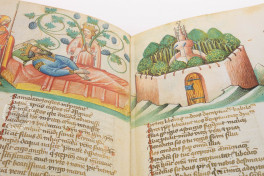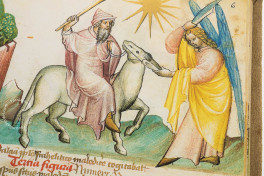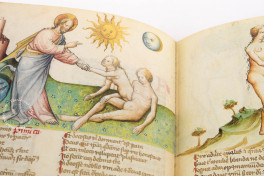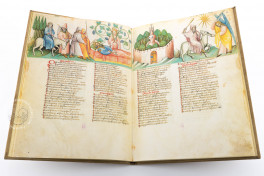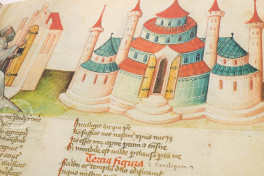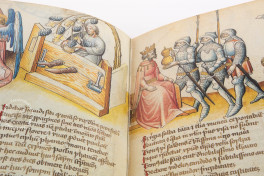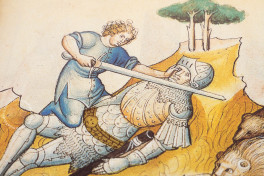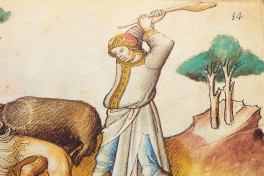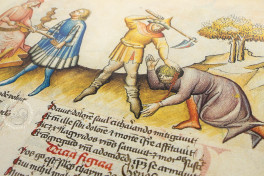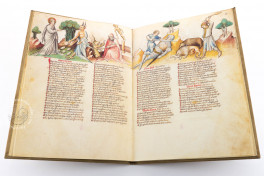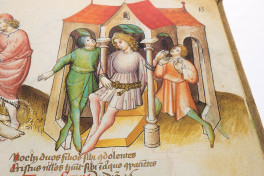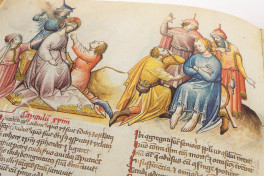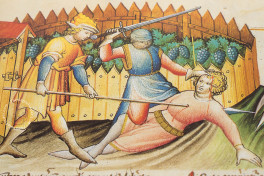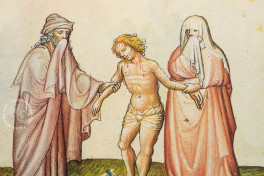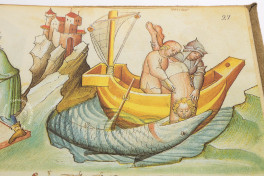The Speculum Humanae Salvationis or "Mirror of the Salvation of Mankind" was one of the most successful texts of the late Middle Ages. This anonymous illustrated work dealt like its direct competitor, the Biblia Pauperum, with popular theology. This genre of literature focused on the medieval theory of Typology, according to which the events of the Old Testament foreshadowed the events of the New Testament.
A handwritten note on fol. 182v indicates that the Speculum was copied in 1432 in "inspruk," identifiable as the city of Innsbruck. It is part of a miscellaneous codex composed of several treatises with different handwriting.
A Successful Manuscript Despite an Unknown Author
A preface reports that the author does not give his name out of humility, although numerous suggestions have been made about his identity. He was likely a cleric, and there is evidence that he was a Dominican. Ludolph de Saxony is the leading candidate for authorship of the manuscript, although Vincent de Beauvais is also a possibility.
The Speculum had a great impact on religious life and iconography throughout the late Middle Ages. The codex first appeared around 1324 and was popular up through the middle of the sixteenth century – the period of the greatest diffusion of the text.
Its impact was felt most in the Central European area, fundamentally in the Low Countries and territories of lower Germany. It soon spread to France and Italy, with more than two hundred manuscripts reproduced of the Latin text, with translations made into German, French, Dutch, English.
Only three manuscripts made their way to Spain, one in the cathedral of Toledo, which disappeared after the war of 1936, and two codices of Germanic origin located by J. Domínguez Bordona in the Cathedral of Toledo.
A Miscellaneous Codex
The text of the Speculum Humanae Salvationis is part of a volume of 183 folios, MS Vit. 25-7, where it occupies fols. 1-43. The remaining 140 folios, lacking miniatures, are occupied by fragments of other works, such as the Liber Scintillanun, the Liber de Miseria Humanae Conditionis, Formula Honestae Vitae, De Natura Rerum de Tomás de Cantimpré, the Liber de Secretis Secretorum of Pseudo-Aristotle, and others.
Although the numbering of the folios is correlative, from 1 to 43, some chapters of the Speculum Humanae Salvationis are not complete, and the continuity of both the text and the illustrations is interrupted. The illustration of the manuscript was also interrupted from Chapter XLIII onwards, so that fols. 37v to 43r contain only text, leaving the upper part reserved for the miniatures blank.
The Concept of the "Mirror"
The plot consists of a series of rhymed Latin verses which narrate events of the New Testament. Each of them is accompanied by three events of the Old Testament where these events were foreshadowed, hence the concept of "mirror," since some scenes were a reflection of the previous ones.
After a brief prologue, the first two chapters deal in four pages with the Creation, the Fall of Satan, the story of Adam and Eve, and the Flood. This is followed by forty double-page chapters comparing one New Testament event with three Old Testament events, with four images each on a column of text. Generally, each chapter occupies two pages.
International Gothic Style Miniatures
The annotation on fol. 182v indicating the execution of the manuscript in 1432 in the city of Innsbruck is fundamental to identify the origin of the miniatures. Their style is typical of the European courts of the first half of the fifteenth century, known as International Gothic or 1400 style.
The artist conceived this manuscript around Innsbruck, in the court environment formed around Duke Frederick. His dependence on the workshops of miniaturists active at the court of Prague is also evident, as this workshop influenced the Viennese school during the first half of the fifteenth century.
Certain landscape backgrounds, numerous details in the drawings, the handling of color, and the study of light, reveal strong contacts with northern Italy. Two such contacts include Trentino and Piedmont, whose relations with Austria and Bohemia were frequent during the late fourteenth and early fifteenth centuries.
A Record of 14th-15th Century Fashion
There is a clear interest in the study of the characters, which translates into a delicate drawing very noticeable in the faces, always with fine features, in the careful study of the nudes, and in the reproduction of contemporary clothes, as is usual in the International court style.
Only the figures of God the Father, Christ, the Virgin, angels, apostles, and prophets remain outside of that adaptation to the fashion of the time: this is a common feature in the tradition of Christian iconography.
There is an extraordinary knowledge of the handling of color, with a predominance of very light tones that allow the creation of a rich scale of shades, to which contributes the interest in the study of light.
The greater importance is given to the human figure, which always contrasts with the ivory background of the parchment, resulting in a scarce representation of architectural backgrounds, even repeating the same buildings in several miniatures.
The scenes representing passages from the Old and New Testament are richly illuminated with gold, and a courtly atmosphere is present in all of the banqueting scenes. Undoubtedly its production was intended for a wealthy patron.
We have 2 facsimiles of the manuscript "Madrid Mirror of Human Salvation":
- Speculum Humanae Salvationis (Espejo de la Salvación de la Humanidad) facsimile edition published by CM Editores, 2020
- Speculum Humanae Salvationis facsimile edition published by Edilan, 1997-2000

